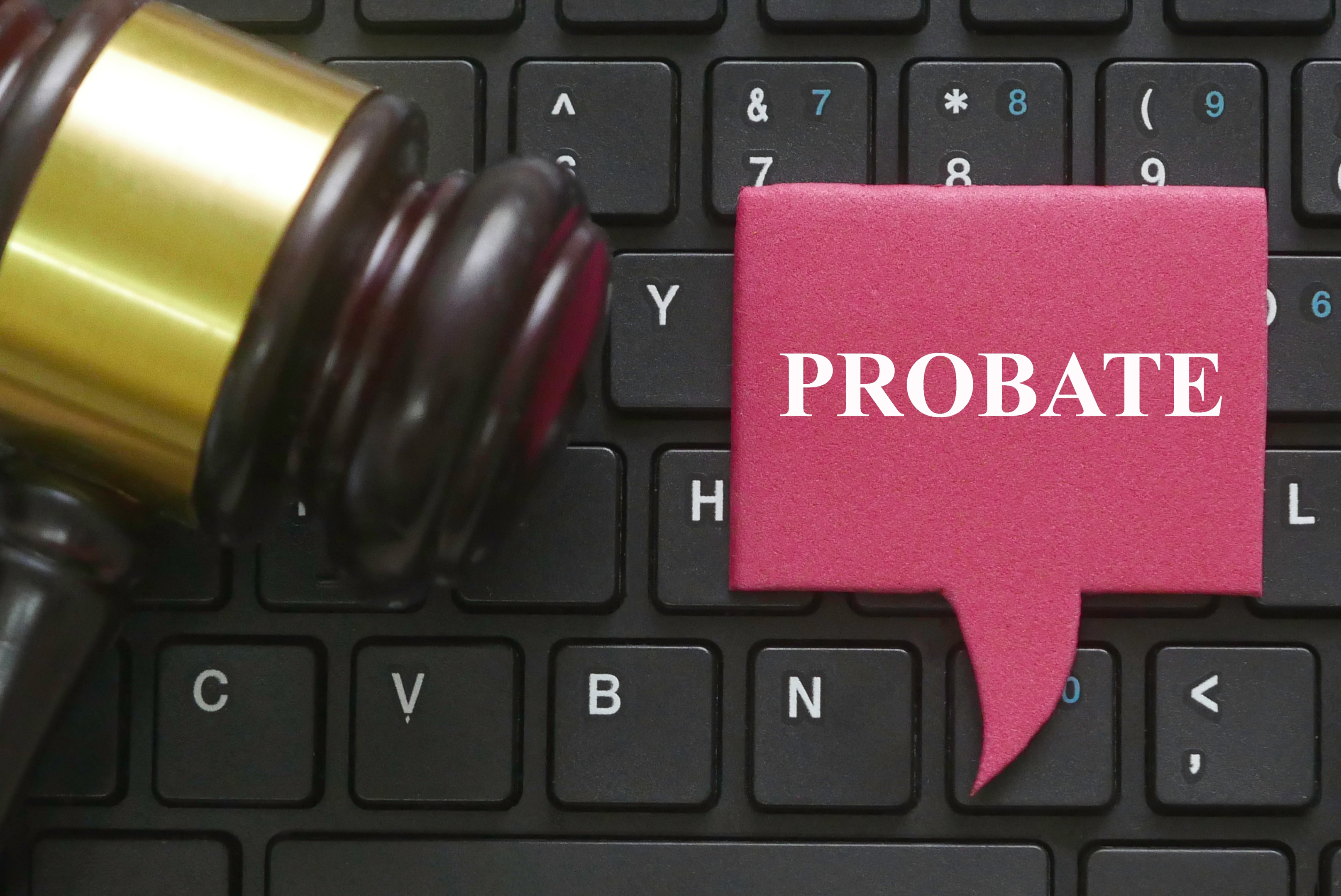Shocking Truth Exposed: Conservatorship California

In recent years, the intricacies and controversies surrounding probate conservatorships in California have come into the spotlight. A probate conservatorship is a legal arrangement that grants authority to a responsible individual or entity to make decisions on behalf of another person, known as the conservatee. This arrangement is typically made when the probate court determines that the conservatee lacks the mental capacity to manage their personal and financial affairs effectively. However, the probate conservatorship process, governed by the Probate Code, involves a range of considerations and potential challenges. This article aims to shed light on the complex world of probate conservatorships, examining different types, legal procedures, potential abuses, and the impact on the conservatee’s rights and assets.
Understanding Probate Conservatorships in California

Probate Conservatorships: Definition and Types
Probate conservatorships in California come in various forms, each designed to address specific situations:
General Conservatorship:
This type of conservatorship is established when the conservatee is deemed unable to handle personal and financial matters. It grants the conservator broad authority over financial transaction and decision-making on behalf of the conservatee.
Limited Conservatorship:
Limited conservatorships are tailored to meet the needs of developmentally disabled adults. The conservator assumes specific responsibilities while promoting the conservatee’s independence and self-determination.
Lanterman-Petris-Short (LPS) Conservatorship:
LPS conservatorships are specific to individuals with serious mental illness. They balance the conservatee’s rights with necessary psychiatric treatment and care.
The Probate Conservatorship Process

The probate conservatorship process involves several key steps.
Filing a Petition:
To initiate a probate conservatorship, an interested person, such as a family member or concerned party, must file a petition with the probate court. This petition outlines the reasons for seeking a full conservatorship of the person and provides evidence of the proposed conservatee’s incapacity.
Evaluation and Investigation:
After receiving the petition, the court appoints a court investigator to evaluate the conservatee’s situation and report back to the court. The court investigator’s role is to assess the conservatee’s capacity and determine whether a conservatorship is necessary.
Probate Conservatorship Hearing:
A probate conservatorship hearing is scheduled, during which the judge considers the evidence presented, including the court investigator’s report. If the judge determines that the conservatee is indeed incapacitated and that a conservatorship is required, the judge decides that they will appoint a conservator.
Conservator’s Duties:
Once appointed, the conservator assumes various responsibilities, which may include managing the conservatee’s finances, making healthcare decisions, and ensuring the conservatee’s well-being. The conservator must act in the conservatee’s best interests and comply with the court’s supervision and reporting requirements.
The Role of Probate Court in Probate Conservatorships

The probate court plays a pivotal role in the establishment and oversight of probate conservatorships in California. As the legal authority responsible for resolving matters related to the estate, the probate court ensures that the rights and interests of conservatees are protected throughout the conservatorship process. Let’s explore the specific functions and responsibilities of the probate court in probate conservatorship cases.
Adjudication and Decision-Making
The probate court serves as the forum where conservatorship matters are adjudicated. It is the court’s responsibility to carefully review petitions, evaluate evidence, and make decisions based on the best interests of the conservatee. During the probate court proceeding or conservatorship hearing, the judge examines the evidence presented and determines whether the proposed conservatee is truly incapacitated and in need of a conservator.
Appointment of Conservators
Upon determining the necessity for a conservatorship, the probate court appoints a conservator to act on behalf of the conservatee. The court considers the qualifications and suitability of potential conservators to ensure that the conservatee’s best interests are served. In cases where there are no eligible private conservators, the court may or judge appoints a public guardian to fulfill this role.
Supervision and Monitoring
Once a conservator has been appointed, the probate court assumes the responsibility of supervising and monitoring the conservatorship of the estate. Regular court reviews are conducted to ensure that the conservator is fulfilling their duties and acting in the best interests of the conservatee. The court may require the conservator to submit reports detailing their activities and financial management to assess compliance and detect any potential issues.
Handling Disputes and Challenges
In probate conservatorship cases, conflicts or disputes may arise regarding various matters such as the appointment of a conservator, the management of the conservatee’s assets, or decisions about medical treatment. The probate court is equipped to handle these disputes, providing a platform for interested parties to present their arguments and seek resolution. The court has the authority to make decisions based on the evidence presented and the applicable laws and regulations.
Termination of Conservatorships
The probate court also plays a vital role in the termination of conservatorships. If circumstances change, and the conservatee regains the capacity to manage their affairs independently, interested parties can file a petition with the court to terminate the conservatorship. The court carefully reviews the evidence and decides whether it is appropriate to end the conservatorship, ensuring that the conservatee’s rights are respected and protected.
Protecting the Conservatee’s Rights
One of the fundamental responsibilities of the probate court in probate conservatorship cases is to protect the rights of the conservatee. The court ensures that the conservatee’s civil rights are not infringed upon and that their well-being is the top priority. The court strives to strike a balance between providing the necessary support and preserving the conservatee’s autonomy and self-determination as much as possible.
Safeguarding Against Abuse and Mismanagement
The probate court acts as a safeguard against potential abuses or mismanagement within probate conservatorships. Interested parties can bring concerns or suspicions of improper conduct by a conservator to the attention of the court. The court investigates such matters and, if necessary, takes appropriate action to protect the conservatee’s interests, which may include removing the conservator and appointing a new one.
The probate court plays a critical role in probate conservatorships in California, ensuring the rights and interests of conservatees are safeguarded throughout the process. With its authority to adjudicate, appoint conservators, supervise, and handle disputes, the probate court seeks to strike a balance between protection and autonomy. By upholding the principles of justice and providing oversight, the probate court aims to foster a system that promotes the well-being and dignity of conservatees within the probate conservatorship framework.
Potential Abuses and Concerns
While probate conservatorships aim to protect vulnerable individuals, there have been cases where abuses and concerns have come to light. Some potential issues include:
Undue Influence:
There is a risk of undue influence, where an individual exerts pressure or manipulation to gain control over the conservatee’s property and their assets for personal gain.
Mismanagement of Assets:
The conservatee’s own estate assets may be at risk if a conservator acts negligently or misappropriates funds meant for the conservatee’s benefit.
Lack of Oversight:
The probate conservatorship process requires proper oversight to ensure the conservatee’s rights are protected and that the conservator is acting responsibly. However, due to limited resources, oversight can be challenging, potentially leading to abuses.
Protecting the Rights of Conservatees
To protect the rights of conservatees and prevent potential abuses, several measures can be taken:
Court Supervision:
The court plays a vital role in overseeing probate conservatorship matters. Regular court reviews and reporting requirements help ensure the conservatee’s well-being and the conservator’s compliance with their duties.
Public Guardian’s Services:
In cases where there are no suitable private conservators available, the court may appoint the public guardian to act as the temporary conservator. This provides an added layer of accountability and protection.
Advocacy and Support:
Family members, friends, and concerned parties can advocate for the conservatee’s rights and monitor the conservator’s actions. They can also seek legal assistance if they suspect abuses or improprieties.
Probate conservatorships in California are complex legal arrangements designed to protect individuals who are unable to manage their personal and financial affairs. While they serve an essential purpose, the probate conservatorship process must be approached with caution to avoid potential abuses and violations of the conservatee’s rights. By ensuring proper oversight, transparency, and the involvement of concerned parties, the system can better protect the assets and rights of conservatees while providing the necessary support for their well-being.
Examples of Conservatorships
Conservatorships are a reality for many individuals in California who face challenges in managing their personal and financial affairs. While each case is unique, there are examples that highlight the diverse situations in which conservatorships can arise. Here are some real-life scenarios that illustrate the application of conservatorships in today’s California:
Aging Individuals with Cognitive Decline
As individuals age, cognitive decline can become a significant concern. In cases where elderly individuals experience conditions such as dementia, Alzheimer’s disease, or other cognitive impairments, a conservatorship may be necessary to ensure their well-being and protect their assets. The a conservator of the person assumes responsibility for managing their financial affairs, making healthcare decisions, and addressing other essential aspects of their lives.
Adults with Developmental Disabilities
Adults with developmental disabilities often require support and guidance to navigate various aspects of their lives. Limited conservatorships are commonly used in these cases, allowing individuals with developmental disabilities to retain as much independence as possible while ensuring their safety and providing necessary assistance. The conservator’s role may involve making decisions related to housing, healthcare, education, and finances.
Mental Health and Grave Disability
For individuals with serious mental health conditions, a conservatorship known as a Lanterman-Petris-Short (LPS) conservatorship may come into play. LPS conservatorships are designed to balance the rights of individuals with grave disabilities and the need for mental health treatment. These conservatorships can provide necessary psychiatric treatment, ensuring that individuals receive the care they require, particularly when they are unable to make informed decisions about their treatment due to their mental health condition.
Individuals Impacted by Substance Abuse or Addiction
Conservatorships can also be utilized for individuals struggling with chronic substance abuse or addiction. In cases where individuals face challenges managing their lives, accessing necessary resources, or making sound decisions due to substance abuse, a conservatorship can help ensure their well-being and address their specific needs. The conservator’s role may involve overseeing treatment programs, managing finances, and providing support to aid in their recovery process.
Persons with Physical Disabilities
Conservatorships are not limited to cognitive or mental health impairments. Individuals with physical disabilities that significantly impact their ability to manage their affairs may also benefit from conservatorships. These conservatorships help individuals maintain their independence while ensuring that their physical limitations do not hinder their access to necessary care, resources, or financial management.
Protection against Financial Exploitation or Undue Influence
Conservatorships can serve as a protective measure against financial exploitation or undue influence. In cases where vulnerable individuals are at risk of being taken advantage of due to their age, mental health condition, or other factors, a conservatorship can provide oversight and protection for their assets. By appointing a full conservator of the estate, the court aims to safeguard the individual’s financial well-being and prevent financial abuse.
FAQs
1. What is the Probate Code?
The Probate Code is a set of laws that governs probate conservatorships and related matters in California. It provides the legal framework for establishing and managing conservatorships, outlining the rights and responsibilities of the parties involved.
2. What is a temporary conservatorship?
A temporary conservatorship is a temporary arrangement granted by the court when there is an urgent need to protect the conservatee’s well-being or assets. It provides temporary decision-making authority until a more permanent conservatorship can be established.
3. What is a court investigator’s role in the probate conservatorship process?
The court investigator plays a crucial role in the probate conservatorship process. They evaluate the conservatee’s situation, conduct interviews, and gather relevant information to provide the court with an objective report. This report helps the judge make an informed decision about whether to establish a conservatorship.
4. Can a conservator make financial transactions affecting the conservatee’s assets without the court’s permission?
In general, a conservator is required to seek court approval for significant financial transactions or financial transaction affecting only the conservatee’s assets. This requirement ensures proper oversight and protects the conservatee’s interests. However, there may be certain financial transactions of a routine nature that a conservator can carry out without seeking prior court approval.
5. What are the alternatives to probate conservatorship?
Alternatives to probate conservatorship include the use of advanced health care directives, power of attorney arrangements, and supported decision-making models. These alternatives aim to provide support and decision-making authority to individuals while preserving their autonomy and self-determination.













